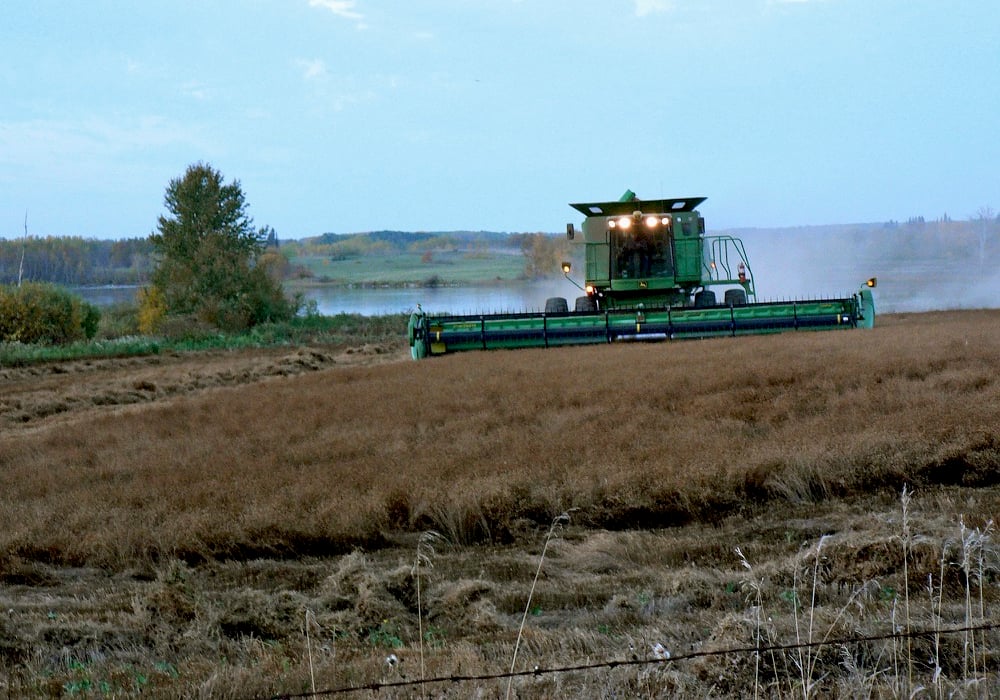Beijing | Reuters — China’s rapeseed meal futures fell to a three-week low on Tuesday after Canadian Prime Minister Justin Trudeau’s plans to resign sparked hope that trade tensions between Beijing and Ottawa will soften.
Trudeau said on Monday that he would step down in the coming months after nine years in power, triggering speculation that China – the world’s biggest importer of rapeseed which is also called canola – may suspend an anti-dumping investigation into imports from Canada.
The most active rapeseed meal futures for May delivery on the Zhengzhou Commodity Exchange fell 3.14 per cent on Tuesday to 2,284 yuan (C$447) per metric ton, the weakest close since Dec. 19 and the sharpest daily decline in a month.
Read Also

Most of Manitoba harvest wraps up for 2025
Manitoba Agriculture issued its final crop report of 2025, showing the overall provincewide harvest at 97 per cent complete as of Oct. 20. Nearly all major crops have finished combining, with 37 per cent of Manitoba’s sunflowers finished, plus 71 per cent of grain corn and small amounts of soybeans and potatoes left to do.
“China-Canada relations have been the biggest factor in the fluctuation of domestic rapeseed meal prices since September,” said Liu Jinlu, an agriculture researcher at Guoyuan Futures.
Any bearish news will accelerate price declines as China’s domestic rapeseed meal remains in oversupply and there is a lack of factors that would lift prices, Liu added.
China launched the anti-dumping investigation in September after Ottawa imposed 100 per cent tariffs on Chinese-made electric vehicles and other products.
Around 40 per cent of Canada’s rapeseed exports typically go to China, accounting for 90 per cent of China’s imports of the oilseed. The rapeseed trade between the two countries is worth about $2 billion (C$2.9 billion) a year.
Chinese importers have scaled back purchases of Canadian rapeseed and shipments from December are expected to have plunged. Most buyers are reluctant to sign new deals, worried that Beijing could impose retaliatory anti-dumping duties.

















